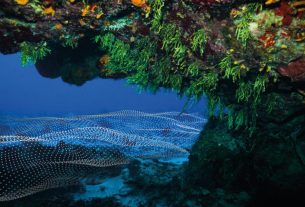Europe – Under the Innovation Fund, the European Union is investing over €1.1 billion in seven large-scale innovative projects.
The funds will be used to support projects that aim to commercialize breakthrough technologies in energy-intensive industries, hydrogen, carbon capture, use, and storage, and renewable energy. Belgium, Italy, Finland, France, the Netherlands, Norway, Spain, and Sweden are all involved in the projects.
The seven projects were chosen for funding as part of the first Innovation Fund call for large-scale projects with total capital costs exceeding €7.5 million. Independent experts assessed them for their ability to reduce greenhouse gas emissions when compared to conventional technologies and to innovate beyond the state-of-the-art while remaining mature enough for rapid deployment. Other criteria for selection included the projects’ scalability and cost-effectiveness.
The projects chosen to decarbonize different parts of Europe’s industry and energy sectors, such as chemicals, steel, cement, refineries, and power and heat, cover a wide range of relevant sectors. All of the projects are either already part of industrial hubs or are intended to kick-start the decarbonization of interconnected industries.
The projects
Energy-intensive industries: In Gällivare and Oxelösund, Sweden, a project aims to completely eliminate greenhouse gas emissions from steel production by using renewable hydrogen. Another project in Finland will demonstrate two methods for producing clean hydrogen at a refinery in Porvoo: renewable energy and CO2 capture and storage in the North Sea. In France, a project will capture unavoidable emissions in a cement plant, part of which will be geologically stored in the North Sea and part of which will be integrated into concrete. A project in Belgium will develop a complete carbon capture, transport, and storage value chain in the Port of Antwerp to reduce emissions in the production of hydrogen and chemicals.
Renewable energy: In Catania, an industrial-scale pilot line for the manufacture of innovative and high-performance photovoltaic cells is being developed as part of an Italian project. In El Morell, Spain, another project will convert non-recyclable municipal solid waste into methanol, a critical basic chemical and low-carbon fuel. A full-scale bioenergy carbon capture and storage facility will be built at a Swedish biomass combined heat and power plant in Stockholm as part of another project.
The European Climate, Infrastructure and Environment Executive Agency (CINEA), the Fund’s implementing body, is starting to prepare individual grant agreements with successful projects. These are expected to be completed in the first quarter of 2022, allowing the Commission to approve the grant award decision and begin disbursing the funds.




